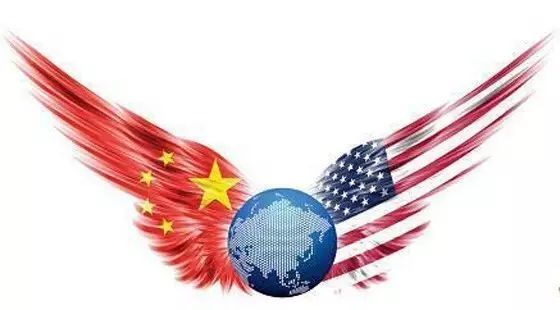在特朗普尚未看到疏远中国将会如何削弱他的其他战略目标之前,短期内,保持战略忍耐仍旧是中国最好的选择。但很显然,接下来的四年,特朗普政府将发动一场全面的运动,而这将破坏迄今为止实现中美和平的大国规范。
Is Refusing to Treat China Like a Great Power a Good Idea?
天地人和 经世致用
Harmony Knowledge Solutions

Jared McKinney
盘古智库非常驻研究员
新加坡拉惹勒南国际研究院
国际关系学博士生
If “personnel is policy,” then stable U.S.-China relations do not seem to be in the offing. In the short term, strategic patience is stillChina’s best move—Trump has yet to see how alienating China is likely to undermine his other goals, such as growing the American economy—but it is becoming increasingly clear that over the course of the next four years, the Trump Administration is going to conduct an all-out campaign to undermine the Great-Power norms that have so far enabled peace between the U.S. and China. The result is likely to be not just instability, but a journey down the road to war.
The most important of these norms is that of Great Power recognition.
The idea that Great Powers possess a special status dates to the Congress of Vienna. After the near-constant warfare of the eighteenth century, which culminated in Napoleon’s conquests on the European continent, the statesmen of Europe, who believed that any more war would lead to revolution, worked with one another to create a new institution to regulate Great-Power relations and keep the peace. This institution came to be called the Concert of Europe. The first norm of the Concert, as the respected historian Paul Schroeder explained in hisbook on the Crimean War, was “Thou shalt not threaten or humiliate another great power.” The second norm of the Concert was the expectation that Great Powers would form a consensus on questions that touched on all of their interests. Unilateral action was only permissible when a Great Power was acting solely within its own sphere; otherwise, the powers were expected to meet and work out their differences, as they did—for example—in response to the Greek and Belgian independence movements. Finally, the Great Powers were supposed to seek political equilibrium above selfish unilateral assertions of interest. This meant “the recognition of one’s legitimate interests, sphere of influence, and the right to a voice in general affairs . . . assurance of equality in rank, status, and dignity, even if not in power,” as Schroeder haselsewhere commented.
The concert system worked. In the long nineteenth century (1815-1914) the number of battlefield deaths (by Schroeder’s calculation), relative to population, was seven to eight times less than the preceding century. Indeed, the distinguished political scientist Jack Levyhas statedthat “The nineteenth century should be viewed as an anomaly in an otherwise continuous pattern of warfare over the last five centuries.” Of course, the First World War brought an end to the relative peace of the Concert era. But after the Second World War, certain norms of the Concert system were reconstructed in the U.N.’s Security Council, from which the victorious powers were supposed to jointly mange world affairs while maintaining peaceful relations with one another. The Cold War prevented the enactment of this vision and America’s “unipolar moment” after the collapse of the USSR made Great Power peace thereafter unnecessary, because there were no Great Powers, only the American “hyperpower.”
China’s rise and Russia’s reaction to America’s aggressive expansion of NATO has restored the reality of Great-Power politics. The trouble is that Great-Power politics without the norms of the Concert system is likely to result in serious conflict. Except for the long nineteenth century, in modern history there has never been an extended period of peace among Great Powers in frequent contact with one another. The norms of the concert system are the best predictor we have of what makes Great-Power peace and what makes Great-Power war. Though nuclear weapons probably play a restraining role, the close calls of the Cold War conclusively demonstrate that they cannot prevent war on their own.
Respect, consensus, and political equilibrium can hardly be said to have been the defining elements of previous Administrations’ China policies. Even so, in the past “Congagement”—a mixture of positive economic, diplomatic, and international engagement and military containment—proved sufficient to promote relatively good bilateral relations. Congagement, however, always had a necessary “end by” date: no real Great Power (i.e., China) would long be content living in the military shadow of another Great Power (i.e., the U.S.). Indeed, China has been signaling its dissatisfaction with the status quo for at least the past seven years.
Today, the Trump Administration is answering China’s protests by casting Congagement aside and replacing it with open “Balancing”—that is, political and economic competition and military containment.
Defenders of the Trump Administration’s new tone expect China to respond obediently.ExplainsDan Blumenthal:
My own view, and my own experience in government, is that when you are very clear with China about what your national interests are and what you are going to do in the region, they become very clear as well and say, ‘You know what, we’re going to stop pushing’ and the relationship in certain areas can improve.
This appears to be the course Trump’s team is chartering. In his confirmation hearings, Rex Tillersondeclared, “We’re going to have to send China a clear signal that, first, the island-building stops and, second,youraccess to those islands also is not going to be allowed.” Suddenly, the disputed islands of the South China Sea have become “akin to Russia’s taking [of] Crimea,” according to Tillerson. On 23 January, Trump’s Press Secretary Sean Spicerconfirmed this interpretation: “It’s a question of if those islands are in fact in international waters and not part of China proper, then yeah, we’re going to make sure that we defend international territories from being taken over by one country.”
Respect, consensus, and political equilibrium are no longer even on the table. The tone of the Trump Administration is that the U.S. will command and that China will obey. It is as if America remained the only Great Power.
Though Trump may not himself have strong or coherent positions on China as a Great Power, his prospective appointments and nominations indicate angry threats to China will become the new norm.
* The conspiratorial Peter Navarro, whose views of China are even more extreme than those of the typical China hawk, has already been installed in the White House
* Ashley Tellis, Trump’smost likely pick for ambassador to India, has coauthored theauthoritative guide to containing China
* Randall Schriver, theleading candidatefor the Assistant Secretary of State position for East Asia, wrote an op-ed with the afore-quoted Dan Blumenthal praising Trump for his Taiwan call and insisting that U.S. policy shouldn’t be China-centric.
* Victor Cha, the leading candidate for the corresponding Assistant Secretary of Defense position, has spent his academic and professional career defending the U.S. alliance system and advocating a tougher position against North Korea.
* John Bolton, who has recentlysuggestedstationing U.S. forces in Taiwan, appears tostill be in the runningfor the #2 State Department position.
At this point, the execution of these appointments would no longer even be a surprise. Any chance Trumpinitially had of overcoming the Washington consensusof maintaining U.S. primacy globally, even at the risk of war, has virtually been eliminated by Trump’s Taiwan call and the comments of Tillerson and Spicer on the South China Sea. The above nominations (or some equivalent grouping) would make a hardline approach to China a certainty.
China is a Great Power. According to the World Bank and the IMF, at purchasing-power parity China’s economy hasalready surpassedAmerica’s. Economic parity at market rates is probably still around twenty-five years away, and the U.S. still retains significant leads in wealth, education, and technology. The result is a situation of “asymmetric parity”: China is America’s equal in some ways, but not in others. This is the beginning of an ambiguous situation where China insists on being recognized as a Great Power (daguo) while the U.S. refuses to extend such recognition.
Trump’s advisors hold to the Blumenthal approach: reproach China, and it will give in. Following the social-scientific studies of John Vasquez, I have previously called this the “realist road to war.” Simply submitting to America’s yelling and threats would forfeit any claim to being a Great Power. It would humiliate China, weaken President Xi’s domestic position, and forever void China’s claim to a decisive voice in global affairs. China is not going to sacrifice its core interests in Taiwan and its near abroad because America tells it to. Instead, the U.S. should expect China to push back, and, on occasion, unilaterally escalate the situation to make its signal of dissatisfaction costly.Absent the Concert norms of respect, consensus, and political equilibrium, conflict between the U.S. and China is coming, and it is Trump and his advisors who bear this responsibility. ■
From China-US Focus
主编邮箱:[email protected]
 相关阅读
相关阅读
盘古智库
盘古智库(Pangoal Institution)成立于2013年,是由中外知名学者共同组成,植根于中国的公共政策研究机构。盘古智库也是中联部金砖国家智库中方理事会成员和中联部“一带一路”智库合作联盟理事单位。
经过三年来的高速发展,盘古智库已经成为中国最具影响力的社会智库之一,并荣膺宾夕法尼亚大学全球智库报告2016亚洲最佳智库(排名第57)。
盘古智库秉持“天地人和、经世致用”的理念,以“客观、开放、包容”的态度,致力于推动中国社会的现代化发展进程。盘古智库以思想之力坚定参与实现中华民族伟大复兴的历史进程,是中国梦的实践者,是构建人类命运共同体的助推者。
盘古智库聚焦全球治理、一带一路、创新驱动、宏观经济等领域的研究。作为主要发起单位,盘古智库倡议成立了由来自中国、美国、德国、意大利、印度、新加坡、加拿大等国的海内外近二十家一流智库组成的全球治理智库连线,大大提高了中国智库在全球治理中的话语权。
盘古智库汇聚了超过200名在国内外学界、政界、智库界、企业界等领域声望卓著的专业人士担任高级顾问、学术委员、高级研究员及研究员。
目前,盘古智库拥有专职研究与工作人员50余人,总部位于北京香山,并在上海、深圳、长沙等城市设立了办事机构。
